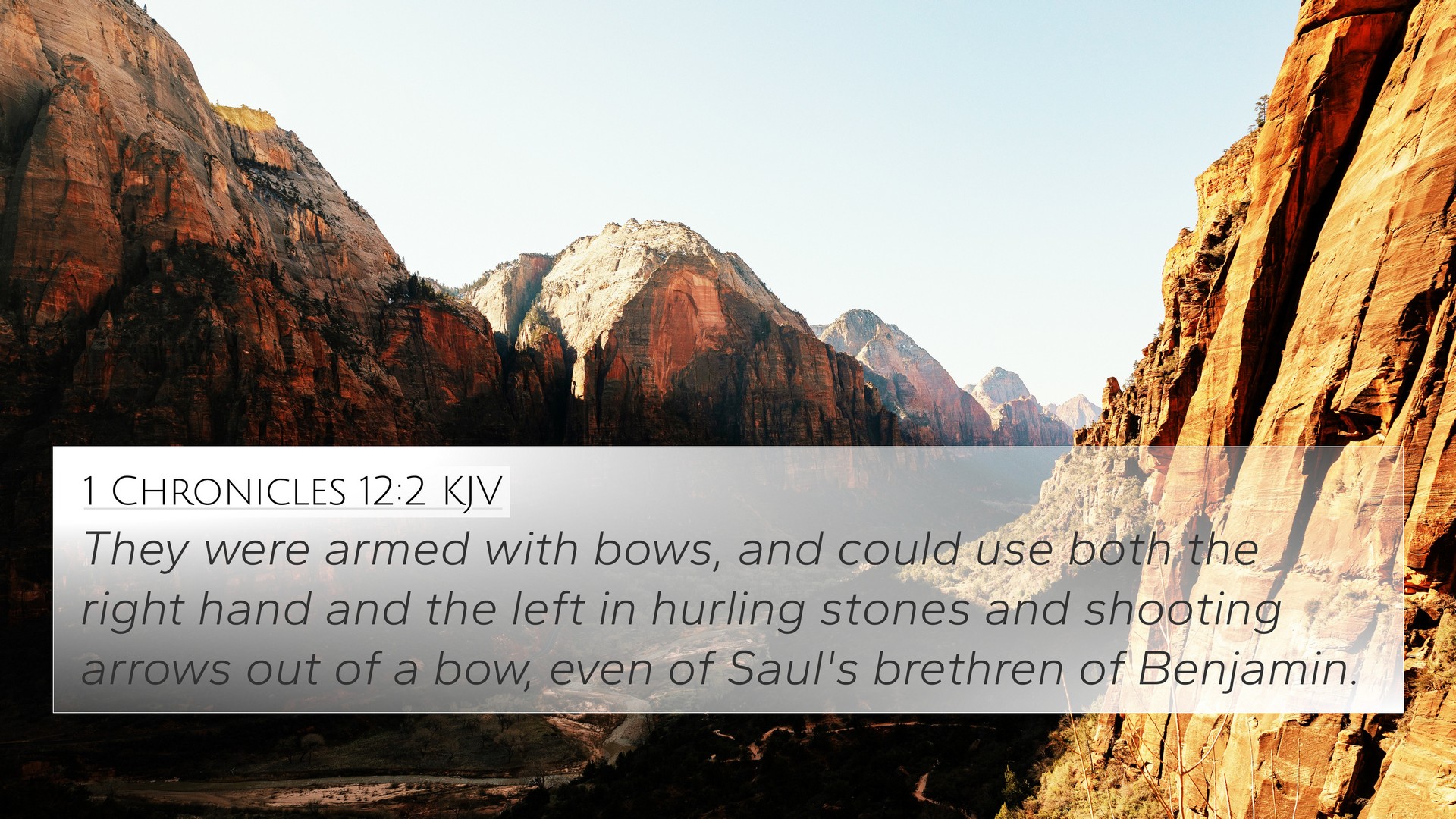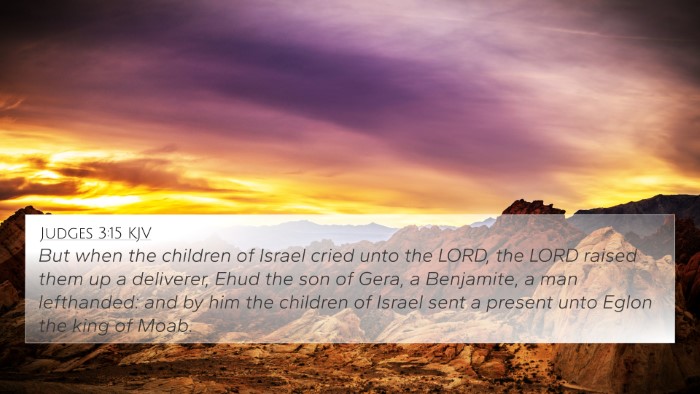Understanding 1 Chronicles 12:2
Verse: "They were armed with bows, and could use both the right hand and the left in hurling stones and shooting arrows out of a bow, even of Saul's brethren of Benjamin."
Summary of Meaning
This verse offers insight into the mighty men of valor who rallied to David during his rise to kingship. The reference to being "armed with bows" highlights their readiness for battle, while the ability to use both hands signifies exceptional skill and versatility.
Commentary Insights
-
Matthew Henry: Matthew Henry emphasizes the importance of these warriors' skills, noting that they represent a diverse and capable force. The reference to being able to fight with both hands suggests a level of training and adaptability uncommon in their time.
-
Albert Barnes: Barnes focuses on the specific mention of being from the tribe of Benjamin, drawing connections to Saul, Israel's first king. He illustrates the transition of loyalty from Saul's lineage to David, highlighting the significance of these warriors’ commitment to David despite previous allegiances.
-
Adam Clarke: Clarke elaborates on the physical capabilities of these warriors and how their skills exemplify the ideal preparation for battle. He suggests that their dual-handed combat abilities can be seen as a metaphor for balance in both spiritual and physical endeavors.
Cross-References for 1 Chronicles 12:2
1 Chronicles 12:2 connects with several other verses within the Bible, enhancing its message and meaning through scriptural cross-referencing:
- 1 Samuel 22:2: Highlights David's gathering of the discontented and distressed, similar to the context of 1 Chronicles 12:2.
- 2 Samuel 23:8-39: Provides a list of David's mighty men, underscoring their bravery and skills.
- 1 Chronicles 11:10: Introduces the concept of David's elite warriors, setting the stage for understanding their role in his reign.
- Psalm 144:1: Acknowledges God as the one who trains hands for war, reflecting the theme of divine preparation.
- Acts 15:14-17: Discusses God’s choice of a people, highlighting the continuous unfolding of His purpose through chosen vessels.
- 1 Corinthians 9:24: Uses athletic metaphors akin to the warriors' dual-abilities in a spiritual context, showing preparedness.
- Hebrews 11:32-34: Provides examples of warriors and their faith, driving home the valor in the service of God.
Thematic Connections and Analysis
This verse illustrates the themes of loyalty, skill, and divine purpose. The warriors represent a shift in allegiance and the creation of a new Israel under David. Their readiness for war signifies the need for spiritual and physical preparedness in the service of God’s kingdom.
Exploring Inter-Biblical Dialogue
The skills mentioned in 1 Chronicles 12:2 reflect a broader scriptural theme found throughout the Bible. Here are some points that reveal inter-Biblical dialogue:
- Training and Readiness: The theme of preparation for battle connects to Ephesians 6:10-18 where believers are encouraged to equip themselves with the armor of God.
- Divine Selection: The transition from Saul to David is a common narrative, seen in other biblical texts as God raises leaders according to His purpose.
- Faith and Valor: Just as these soldiers embodied physical bravery, Hebrews 11 shows spiritual heroes who displayed faith against overwhelming odds.
Tools for Bible Cross-Referencing
To explore the depth and connections within scriptures, various tools can be utilized:
- Bible Concordance: A resource that allows you to find verses associated with specific keywords.
- Bible Cross-Reference Guide: Tools that compile related verses for deeper study.
- Bible Reference Resources: Comprehensive tools that offer insights into thematic and intertextual connections.
Conclusion
In conclusion, 1 Chronicles 12:2 not only portrays the valor and skill of David's followers but also showcases the importance of loyalty and God’s providence in the transition of leadership. Through cross-referencing with other scriptures, a richer understanding emerges that encourages both historical and spiritual reflection.






